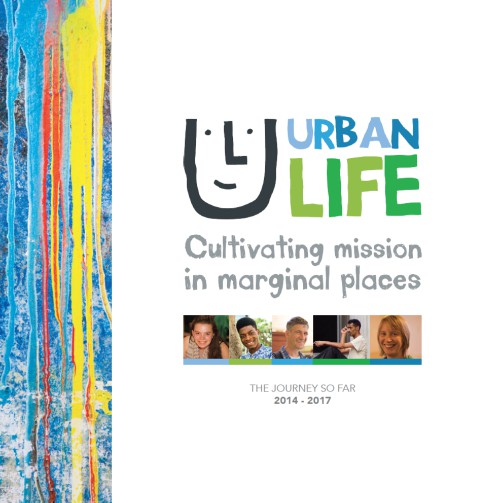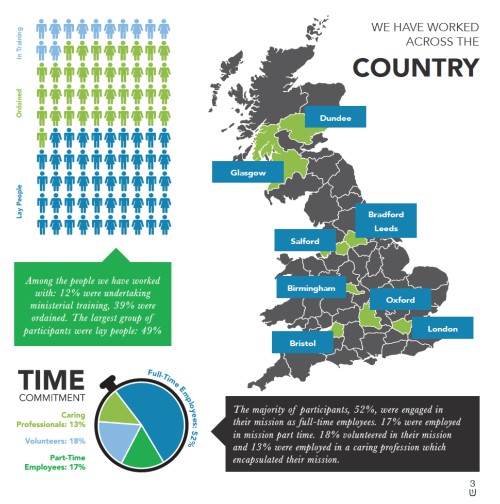Urban Life: the journey so far
A new report charting the work of Urban Life has been released
Urban Life is a network of people exploring and researching new approaches to mission and Christian presence in deprived and marginalised neighbourhoods.
 It was founded in 2014 as a partnership between Baptists Together, Urban Expression, Bristol Baptist College, BMS World Mission and Trinity College Bristol.
It was founded in 2014 as a partnership between Baptists Together, Urban Expression, Bristol Baptist College, BMS World Mission and Trinity College Bristol.
Three years on, a new study called Urban Life: The Journey So Far charts its work and impact.
‘We’ve been very encouraged by the way things have been going in the last few years,’ said co-ordinator Mike Pears.
‘We have covered a lot of ground in that time, developing some quite innovative learning methods appropriate for places of deprivation.
‘As we look at how we continue to develop, it’s good to reflect on all that’s happened so far.’
The report looks at the various Urban Life projects which help Christians learn more about their own places and develop a more effective Christian presence within them.
These include Theology To Go groups, year long discussion groups which enable mission practitioners to engage with current themes and ideas in missiology and marginalisation in relation to their own situation. Fifty-three people have participated in seven groups in London, Bristol, Birmingham, Glasgow, Dundee and Leeds.
‘It’s really helped me in how I work with people,’ said one participant. ‘It’s not that my aims have changed, it’s that I have a certain understanding of why I would choose certain ways of working.’
Other projects include Creative Conversations, Learning Journeys, Meals with Meaning and its courses.
The report shows that Urban life has developed a ‘particular approach’ to enabling learning, and lists six principles. These include ‘learning in community’ – ‘everyone is a learner including the facilitators, so we are strongly relational and participatory in all our activities,’ the report notes.
Other principles include rigorous theological reflection (‘The role of Urban Life is to act as theological accompaniers’); being context-based, inclusive, and attentive to everyday life; and interdisciplinary (‘drawing on different fields such as Practical Theology, Social Science and Urban Theory’).

The report also breaks down the different groups Urban Life has worked with: 12 per cent were undertaking ministerial training, 39 per cent were ordained; and the largest group have been lay people (49 per cent). The majority of participants were engaged in their mission as full-time employees (52 per cent).
It has worked with six different denominations, and a wide range of groups (including local congegations), organisations and networks. In its first three years Urban Life published the first two books of a six book series.
The report concludes, ‘Having begun with a concern for urban places experiencing marginalisation, we have found ourselves engaging with mission at all kinds of margins: urban, international, rural and suburban. We intend to continue to engage with the complexity and breadth of marginalised communities in our society.
‘Urban Life has grown through the vision and skill of a core group of reflective practitioners. Having established our ethos and developed a range of learning opportunities we hope to support many more people in mission.
‘In order to enable this, and to embody our ethos Urban Life will seek to develop as a collaborative team of learners, providing theological accompaniment to those in mission among marginalised communities.’
Click here to download Urban Life: The Journey So Far 2014-2017
For more about Urban Life, visit: urbanlife.org
Baptist Times, 19/10/2017